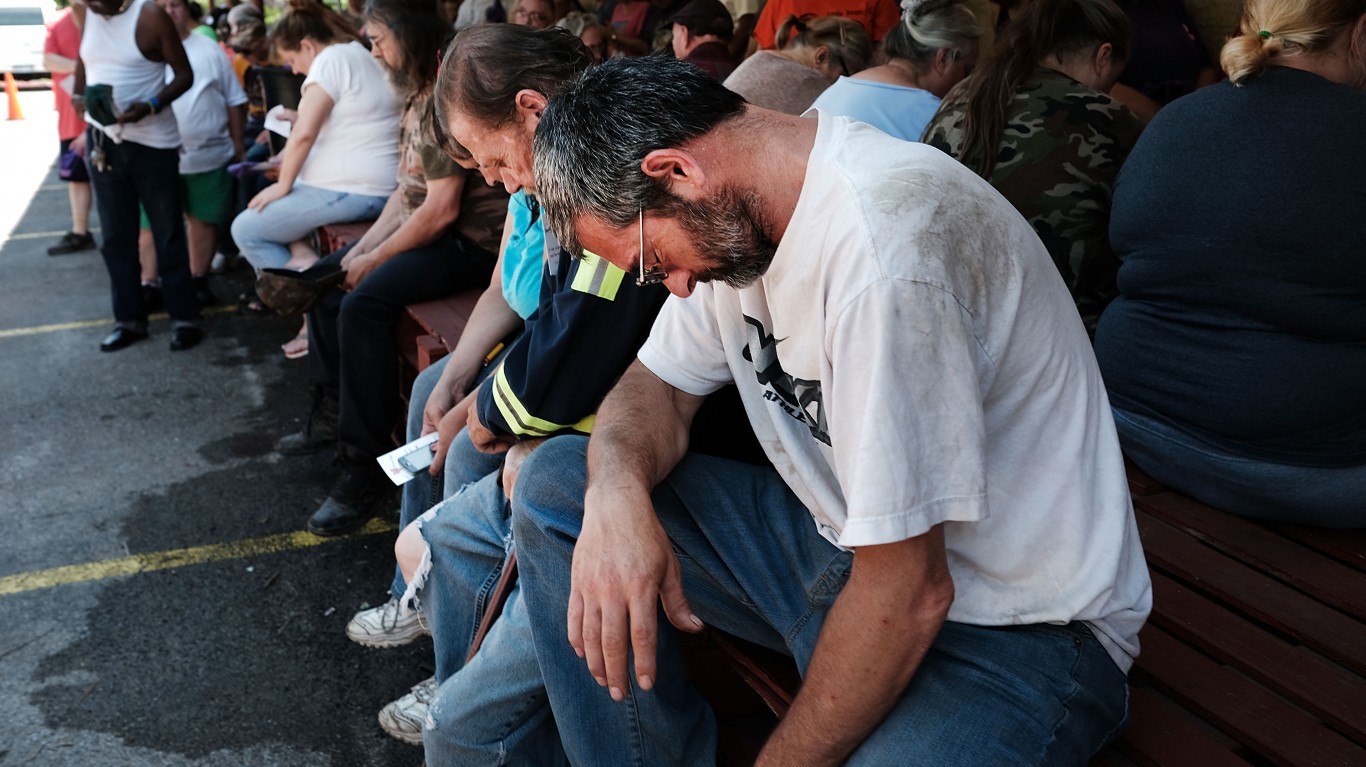
By David Callaway, Callaway Climate Insights
With less than 70 days until the COP26 global climate summit begins in Glasgow, Scotland, plans and priorities are frantically being set against a backdrop of rising Covid cases in the UK and soaring energy usage around the world.
Both COP26 President Alok Sharma and U.S. Climate czar John Kerry are reported to be heading to China next month to plead for a commitment from the world’s largest polluter to reduce its coal output. A deal is likely, as it is the only thing that can save the summit as a success. But China, which was recently found to have more greenhouse gas emissions than the rest of the developed world combined, will bargain hard for relaxed emissions reporting requirements on its end.
Environmental protest group Extinction Rebellion, meanwhile, has set four days of protests in central London this week and is leading the call for a global day of protest on Nov. 6, during the conference. COP26 organizers expect a large protester presence at the summit, perhaps as many as 10,000, though Covid restrictions on travel have led many groups worldwide to favor a global protest as well.
Either way, it will only further complicate the nightmare logistics of getting delegates from around the world vaccinated and into Glasgow to attend. How they will get away without this being a super-spreader event is another question altogether.
The buildup of the event as a once-in-a-generation, historic last chance for the world to address climate change is increasing the pressure everywhere for success metrics to be met. It comes amid a new report from London think tank Ember that global electricity usage has now rebounded above pre-pandemic levels in 2019.
At this point, a coal deal is the best shot to achieve any sort of success, even if it will be difficult to police. So while UK Prime Minister Boris Johnson says the summit is about “coal, cars, cash, and trees,” it’s really about coal and cash.
In the next several weeks, Callaway Climate Insights will offer a special report to investors on what to watch for from the summit that could move ESG markets, including a special event on Oct. 7 featuring EU Climate chief Frans Timmermans, and several noted ESG investors and sustainability executives.
Stay tuned.
More insights below. . . .
ZEUS: Inside the plan to build a hydrogen-fueled airplane
. . . . Cranfield Aerospace is a 30-year-old startup. But it just might help the aviation industry solve its fossil fuel problem, writes David Callaway. The UK aircraft design firm is raising money to attach hydrogen fuel cell tanks to a small brand of air taxi to demonstrate how hydrogen fuel can power airplanes, at least ones of the smaller size. The UK government has invested and the current strategy calls for a first flight in 2025. The aviation industry, responsible for a billion tons of carbon emissions a year, badly needs some innovation. Read more here about the details of CEO Paul Hutton’s plans to develop a hydrogen-fueled airplane. . . .
EU notebook: How Maersk’s shipping pledge changes the supply chain game
. . . . It’s not exactly turning a supertanker on a dime, but Danish shipping giant Maersk’s pledge to spend £1 billion ($1.38 billion) on eight ships to operate on green methanol is a game changer, writes Stephen Rae from Dublin. With more than 100 of its largest shipping clients, such as Amazon and Disney, greening their own supply changes, the world’s biggest shipping company’s commitment immediately raises the stakes on its Chinese, U.S., and other European competitors to start finding ways to cut emissions from what is one of the most polluting industries around. . . .
San Francisco, rated high in climate action, faces daunting checklist
. . . . When it comes to steps taken to mitigate climate change, San Francisco is one of the top-rated cities in the world. But its checklist of challenges still to come, including a complete overhaul of its public transportation system, is daunting, especially with Covid, homelessness and other priorities vying for attention. In this special piece headlined U.N. climate report calls for bold action. What does that look like in San Francisco?, San Francisco Examiner reporter Carly Graf details the steps city leaders need to take and looks at their chances of accomplishing them as the state of California suffers on the front line of the climate emergency. . . .
Thursday’s subscriber insights: As world prepares for climate summit, energy use is soaring
. . . . Record growth in renewable energy investments the first half of this year is being outpaced by harmful power company emissions, which are actually up on their pace in 2019, before the pandemic. Amid a summer of climate catastrophes, what needs to happen to get wind, solar, and other renewable investing ahead of the game. Read more here. . . .
. . . . After turning a blind eye to climate leaders during the negotiations of President Biden’s infrastructure bill, Democratic leaders are now pulling out all the stops to win Congressional support from progressives and others by highlighting the vital importance to the environmental world of passing it. Read more here. . . .
. . . . Danish shipping giant Maersk’s climate pledge (see EU Notebook above) dominated shipping headlines this week, but innovation among smaller ships in moving to electric or hydrogen-powered fuel is moving fast, with examples from Norway to Seattle. Read about them here. . . .
. . . . The best thing about innovation is that it never fails to take you by surprise. As infrastructure leaders debate how to spread electric vehicle charging stations across the country, some companies, including EV maker Rivian, are creating hot spots in where long-haul drivers go: national parks. Read more here. . . .
Editor’s picks: China’s smog-free city, U.S. homeowners want more solar
https://twitter.com/IRENA/status/1430681396868042756
U.S. homeowners want solar with energy storage
Higher electricity bills, power outages and grid failures are spurring homeowner interest in solar with energy storage, according to a new survey. The 2021 SunPower Energy Sense Index surveyed 1,500 homeowners in the U.S., to learn what their home energy experience is, what they understand about the energy industry, and what motivates them to buy solar. PV Magazine reports the survey results show 40% of respondents said that they worry about outages on a monthly basis. One in five said that they were concerned about losing their power every week. And more than half said they had experienced a power outage in the last year that has caused their trust in their utility provider to diminish. SunPower Corp. (SPWR), based in San Jose, Calif., is an American company specializing in solar power generation and energy storage.
Swiss Re signs carbon capture deal with Climeworks
Reinsurance giant Swiss Re (SSREY) said Wednesday it has signed a long-term agreement with Climeworks AG for direct carbon air-capture. The deal is valued at $10 million over 10 years for Climeworks. In a news release, Mischa Repmann, a senior environmental management specialist with Swiss Re, said the deal would not only help the company reach its goal of becoming carbon neutral by 2030, it could inspire other businesses considering the use of carbon capture technology. “It’s a call for action, and we’re hoping that others will follow,” he said.
Latest findings: New research, studies and projects
Climate change can make economic contractions more severe
How will climate change affect risks to economic activity? Research on climate impacts has tended to focus on effects on the average level of economic growth. In a new Finance and Economics Discussion Series working paper titled Growth at Risk from Climate Change, Michael T. Kiley, deputy director for financial stability at the Board of Governors of the Federal Reserve System, examines whether climate change may make severe contractions in economic activity more likely using quantile regressions linking growth to temperature. In the abstract for this working paper, Kiley writes: “The effects of temperature on downside risks to economic growth are large and robust across specifications. These results suggest the growth at risk from climate change is large. Climate change may make economic contractions more likely and severe and thereby significantly impact economic and financial stability and welfare.”
Free Callaway Climate Insights Newsletter
It’s Your Money, Your Future—Own It (sponsor)
Are you ahead, or behind on retirement? For families with more than $500,000 saved for retirement, finding a financial advisor who puts your interest first can be the difference, and today it’s easier than ever. SmartAsset’s free tool matches you with up to three fiduciary financial advisors who serve your area in minutes. Each advisor has been carefully vetted and must act in your best interests. Start your search now.
If you’ve saved and built a substantial nest egg for you and your family, don’t delay; get started right here and help your retirement dreams become a retirement reality.
Thank you for reading! Have some feedback for us?
Contact the 24/7 Wall St. editorial team.




